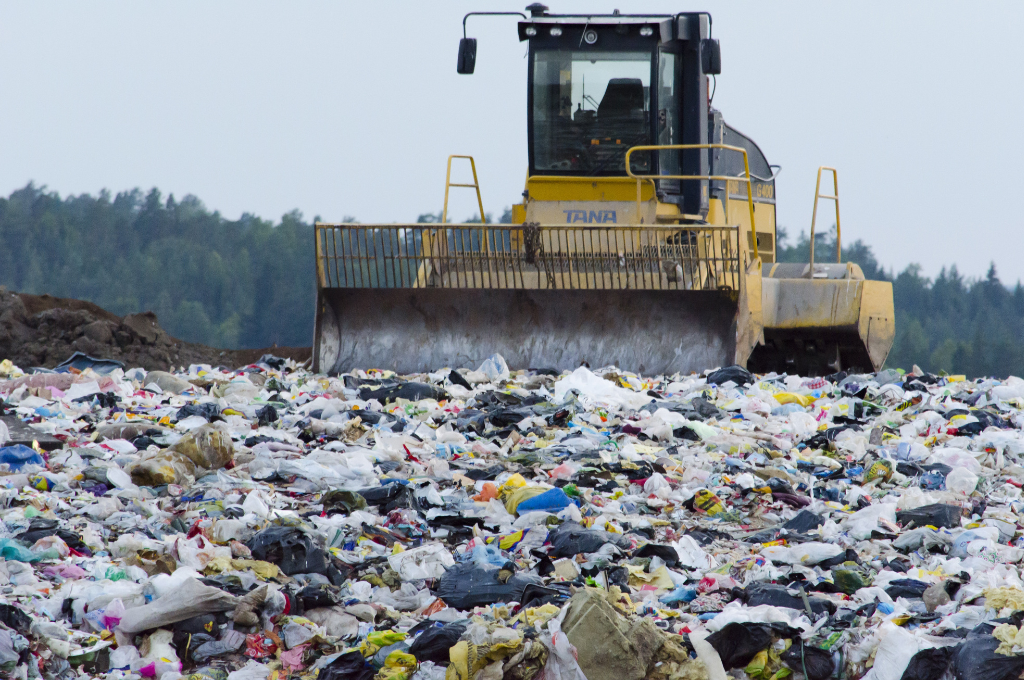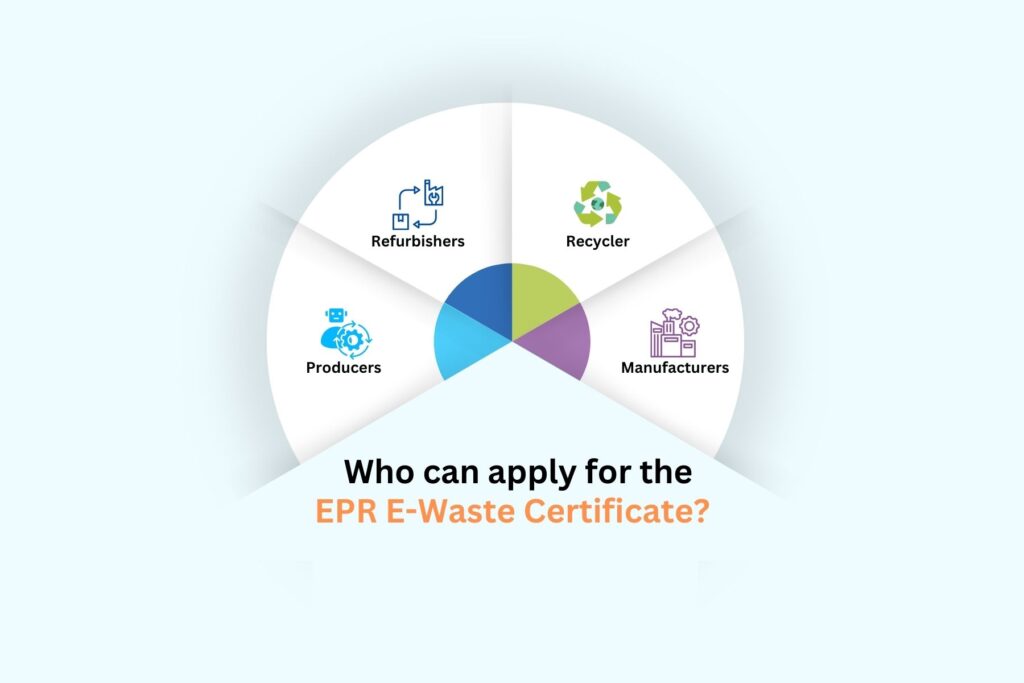
1. What is EBWGR certificates?
Extended Bulk Waste Generator Responsibility certificates (kilograms) = Quantity of solid
waste collected, transported and sent to registered processors/recyclers by local body or
registered third party or the concessionaire (kgs).
2. What are definitions of bulk waste generator, Materials recovery
facility, Residual Solid Waste, Solid Waste and Refused Derived
Fuel?
1) The bulk waste generator covers the following-
(i) Entities, given below, if they satisfy at least one of the following criterion
(ii) Buildings with floor area of 20, 000 sq.m. or above
(iii) Water consumption of 5000 litres per day
(iv) Solid waste generation of 100 kg per day
(a) Institutional users including buildings occupied by the
- Central government departments or undertakings, State government
departments or undertakings, - local bodies,
- public sector undertakings or private companies,
- schools, colleges, universities, other educational institutions
(b) Commercial users including
- commercial establishments including railways, bus stations/depots,
airports, ports, - malls, multiplexes ,
- hotels ,
- hospitals, nursing homes,
- hostels,
- wholesale markets, including―Mandis, for agricultural and
horticultural produce, , fish and meat - stadia, sports complexes,
(c) Residential societies
2) Materials recovery facility (MRF) means a facility where solid waste
other than wet waste and horticulture waste , can be temporarily
stored by the local body or any entity authorized by local body to
facilitate segregation and sorting of collected waste including
biodegradable plastic as well as compostable plastic , and transfer of
recyclables and non recyclables to authorized recyclers or waste
processors from various components of waste.
3) Residual Solid Waste means and includes the waste and rejects
from the solid waste processing facilities which are not suitable
for recycling or further processing.
4) “Solid Waste” means and includes solid or semi-solid domestic waste,
sanitary waste, commercial waste, institutional waste, catering and
market waste and other non residential wastes, street sweepings, silt
removed or collected from the surface drains, horticulture waste,
agriculture and dairy waste, treated biomedical waste excluding liquid
waste, bio-medical waste and e-waste, battery waste, radio-active
waste generated in the area under the local authorities and other
entities mentioned in rule 2.
5) “Refused Derived Fuel” (RDF) means fuel derived from combustible
waste fraction of solid waste like plastic, wood, pulp or inorganic waste,
other than chlorinated materials, in the form of pellets or fluff
produced by drying, shredding, dehydrating and compacting of solid
waste.
3) What are the Duties of waste generator?
Duties of waste generator. -(1) Every waste generator shall, –
(a) Adopt measures to prevent or reduce environmental pollution caused by solid
waste;
(b) segregate and store the waste generated by them in four separate streams at
source namely wet waste, dry waste, sanitary waste and special care waste; and
handover segregated waste to authorized waste pickers or waste collectors;
(c) wrap securely the used sanitary waste like diapers, sanitary pads etc., in the
pouches provided by the manufacturers or brand owners of these products or in a
suitable wrapping material as instructed by the local bodies/authorities and shall
place the same in the sanitary waste bin separate from bins meant for dry waste/wet
waste or special care waste;
(d) Store separately construction and demolition waste, as and when generated, in
their own premises and shall dispose off as per the Construction and Demolition
Waste Management Rules, 2016;
(e) Store horticulture waste or garden waste generated from their premises or land
separately in their own premises and dispose of as per the directions of local bodies
authorities from time to time;
(f) not throw, burn or burry the solid waste generated by them, on streets, open
public spaces outside his premises or dispose in the drain or waterbodies;
(g) Pay such user fee for solid waste management, as specified in the bye-laws of the
local bodies;
(h) keep suitable containers for storage of waste generated viz. wet waste such as
food waste, coconut shells, leftover food, vegetables, fruits, and dry waste such as
disposable plates, cups, cans, wrappers, etc., and shall handover segregated waste to
authorized waste collectors or through waste collection vehicles as notified by the
local body;
(i) not organise an event or gathering of more than one hundred persons at any
unlicensed place without intimating the local body, at least three working days in
advance; and such person or the organiser of such event shall ensure segregation of
waste at source and handing over of segregated waste to waste collector or agency
as specified by the local body. Local bodies shall give these licenses. The waste
generated shall be disposed off in the manner prescribed under these rules.
(j) It shall be the responsibility of all users/consumers,-
i. to discard solid waste separately ;
ii. to ensure that solid waste is recycled/ processed/disposed off in an
environment sound manner by giving it to the local body or an entity
engaged by local body for collection/treatment/ reuse.
(k) Shall not mix biomedical waste covered under Biomedical Waste Management
Rules, 2016 with solid waste provided it is identified as an occupier under Biomedical
Waste Management Rules, 2016.
(2) All hotels, restaurants, resident welfare, market associations and gated
communities and institutions with more than 5,000 sqm area shall, within one year
from the date of notification of these rules and in partnership with the local body
ensure segregation of waste at source by the generators as prescribed in these rules,
facilitate collection of segregated waste in separate streams, handover recyclable
material to either the authorized waste pickers or the authorized recyclers. The bio-
degradable waste shall be processed, treated and disposed off through composting
or bio-methanation within the premises as far as possible. The residual waste shall
be given to the waste collectors or agency as directed by the local body.
4) What are the Duties of Central Pollution Control Board (CPCB)?
(1) The Central Pollution Control Board shall,-
(i) Co-ordinate with the State Pollution Control Boards and the Pollution Control
Committees for implementation of these rules and adherence to the prescribed
standards by all stakeholders;
(ii) Formulate the standards for ground water, ambient air, noise pollution, leachate
in respect of all solid waste processing and disposal facilities;
(iii) Review environmental standards and norms prescribed for solid waste
processing facilities or treatment technologies and update them as and when
required;
(iv) review through State Pollution Control Boards or Pollution Control Committees,
at least once in a year, the implementation of prescribed environmental standards
for solid waste processing facilities or treatment technologies and compile the data
monitored by them;
(v) review the proposals received from State Pollution Control Boards or Pollution
Control Committees or stakeholders on use of any new technologies for processing,recycling and treatment of solid waste and prescribe performance standards,
emission norms for the same within 6 months;
(vi) Monitor through State Pollution Control Boards or Pollution Control Committees
the implementation of these rules by local bodies;
(vii) prepare an annual report on implementation of these rules on the basis of
reports received from State Pollution Control Boards and Committees and submit to
the Ministry of Environment, Forest and Climate Change and the report shall also be
put in public domain by 30 Sep every year;
(viii) publish guidelines for maintaining buffer zone restricting any residential,
commercial or any other construction activity from the outer boundary of the waste
processing and disposal facilities for different sizes of facilities handling more than
five tons per day of solid waste;
(ix) publish guidelines, from time to time, on environmental aspects of processing
and disposal of solid waste to enable local bodies as well as other entities to comply
with the provisions of these rules; and
(x) Provide guidance to States or Union Territories on inter-state movement of
waste.
(2) MoHUA/DDWS shall issue guideline for environmentally sound procedures of
segregation, collection, sorting, transportation , processing and disposal of solid
waste by 31st March 2025.
(3) Central Pollution Control Board shall compile and publish the data received every
year from the State Pollution Control Boards on the centralized online portal by 30
Sep.
(4) Central Pollution Control Board shall develop mechanism for exchange of
certificates on the centralized online portal as provided under these rules.
(5) Central Pollution Control Board shall constitute an implementation committee
under the chairmanship of Chairman, CPCB for the effective implementation of these
rules and make recommendations for making it robust. The committee shall meet at
least once in six months to submit its report and recommendations to Ministry of
Environment, Forest and Climate Change.
(6) Central Pollution Control Board shall validate technologies related to treatment of
solid waste for environmental safeguard perspective.
5) What are Duties of urban local bodies?

(1) All local bodies are responsible for undertaking solid waste management as
provided under these rules in order to protect and improve quality of environment in
the area under their jurisdiction.
(2) Urban local body shall prepare solid waste action plan in prescribed pro forma
guided by state policy and strategy on solid waste management within one year from
the date of notification of state policy and strategy inter alia covering the following
elements:
(i) Total waste generation in the area under jurisdiction with ward wise break up;
(ii) five-year projection for waste generation;
(iii) Ward-wise collection (including for special care waste) and transportation plan;
(iv) Ward-wise mapping of solid waste management infrastructure;
(v) Ward-wise mapping of market places, community service infrastructure such as
bus stands, railway stations, places of religious significance;
(vi) mapping of occupiers identified along with quantity of biomedical waste under
Biomedical Waste Management Rules, 2016 obligated to hand over biomedical waste
generated from their premises to registered BMWTFs.
(vii) Plan for collection and transportation of waste from garbage vulnerable points
and hot spots for littering;
(viii) Mapping of solid waste ingress points in water bodies and plan for stopping
ingress of solid waste in water bodies through placement of appropriate barriers;
(ix) Schedule for cleaning surface water bodies and drains from floating solid waste;
(x) Schedule for street sweeping and placement of waste bins as per prescribed
norms;
(xi) mapping of vacant plots of land under public or private ownership vulnerable for
open dumping of solid waste including railway land and land with public authorities;
(xii) plan for environmentally sound management of sanitary waste including sanitary
pads, diapers, through the use dedicated incinerators designed for the purpose or
common biomedical waste treatment facilities as per guidelines prescribed by CPCB;
(xiii) Plan for collection and environmentally sound management of Special care
waste;
(xiv) Requirement for solid waste management infrastructure including for collection,
transportation, segregation, storage, as required including for Special care waste and
sanitary waste, before processing and recycling (including both wet and dry waste)
and environmentally sound disposal of waste in sanitary/ operational landfills.
(3) All local bodies shall register with SPCB/PCC concerned on the centralized online
portal and upload the city solid waste action plan on centralized online portal
developed by CPCB.
(4) All local bodies shall arrange for door to door collection of segregated solid waste
from all households including slums and informal settlements, commercial,
institutional and other non-residential premises, multi-storey buildings, large commercial complexes, malls, housing complexes, etc., on their own or through
designated third party agency as per time lines given in schedule X.

